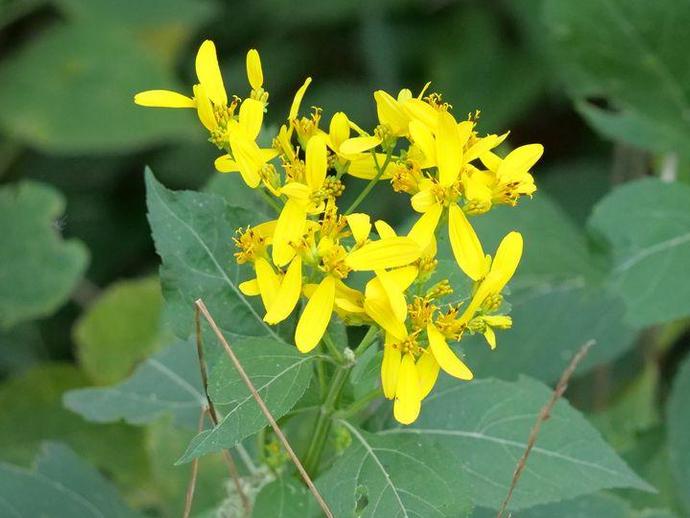October 1, 2021
Ben here with today's edition of #BenInNature presented by our friends at Carter Bank & Trust!
This is Verbesina occidentalis, better known as yellow crownbeard! For a long time, I thought this was a different plant within the same genus: Verbesina alternifolia, also known as wingstem. This is apparently a pretty common misconception because the flowers of the two plants look nearly identical to the untrained eye. The easiest way to tell the difference is by looking at the leaves: crownbeard has wide serrated leaves, while wingstem has narrow non-serrated leaves.
Yellow crownbeard can be found throughout much of the southeastern U.S., and it tends to prefer disturbed, sunny habitats; pastures, hayfields, roadsides, and parking lots are just some of the places this plant is liable to spring up.
I always encourage planting native plants, and while crownbeard has its positives, it also has a few drawbacks. On the positive side of the coin, it tends to attract soldier beetles, which tend to prey on garden pests like aphids and mites. The downside, however, is that it can outcompete other plants and it's very hard to control once established (even goats won't eat it!). Crownbeard is a fine plant to admire when you run across it in the wild, but you might want to think twice before planting it in your garden.
ABOUT #BenInNature
Social distancing can be difficult, but it presents a great opportunity to become reacquainted with nature. In this series of posts, Administrator of Science Ben Williams ventures outdoors to record a snapshot of the unique sights that can be found in the natural world. New updates are posted Monday - Friday, with previous posts highlighted on the weekends. This series of posts is made possible thanks to the support of VMNH Corporate Partner Carter Bank & Trust (www.cbtcares.com).
NATURE PHOTO IDENTIFICATIONS
If you discover something in nature that you would like help identifying, be sure to message us right here on Facebook with a picture (please include location and date of picture) and we'll have our experts help you identify it!

 Hours & Admissions
Hours & Admissions Directions
Directions

